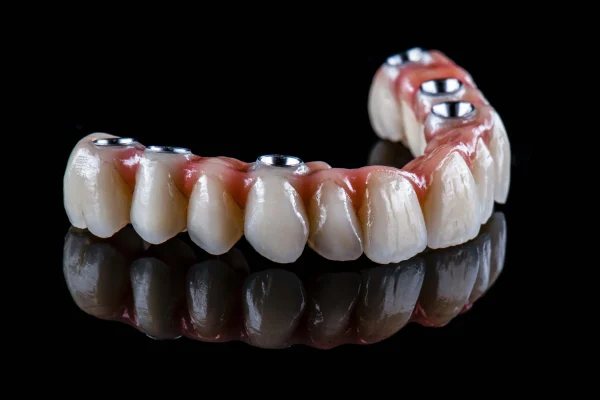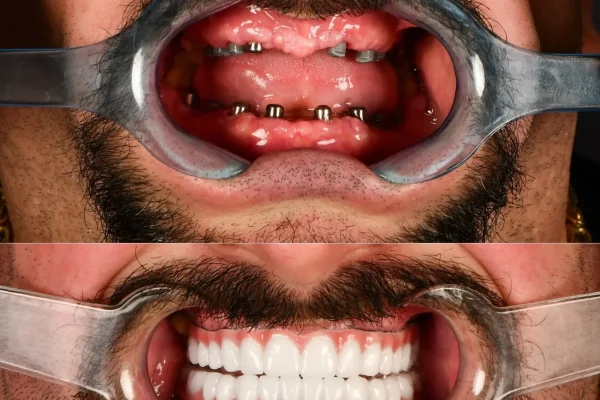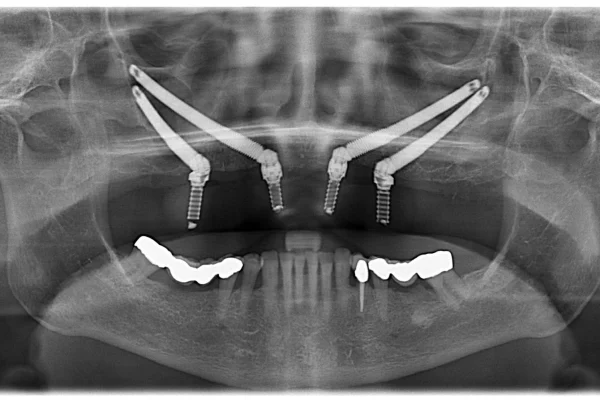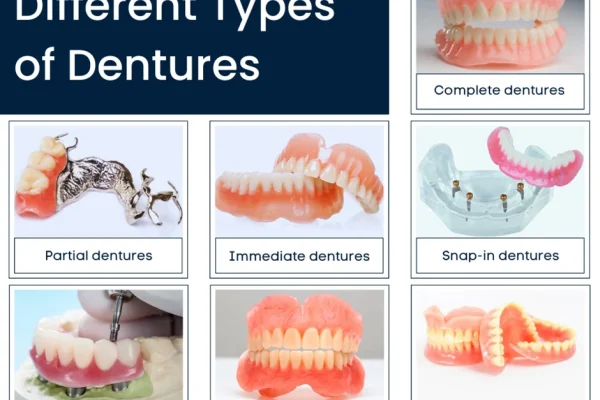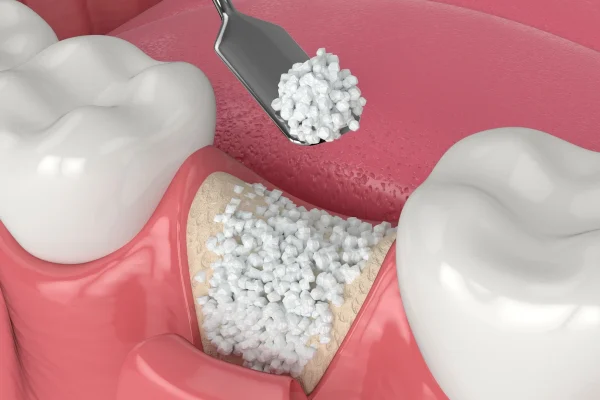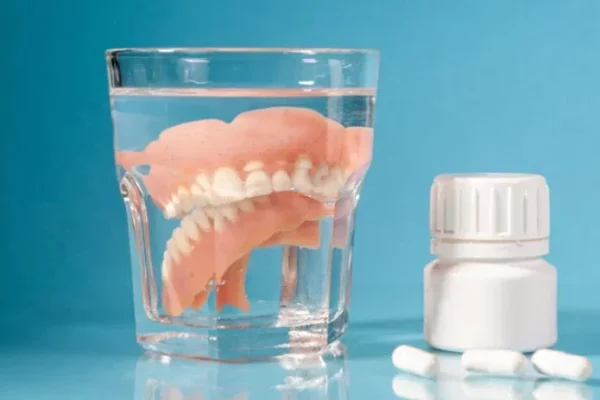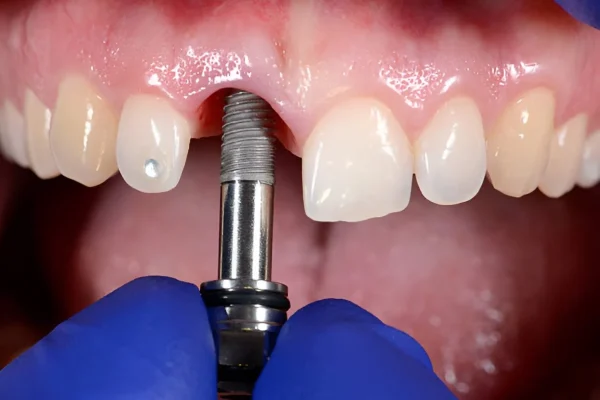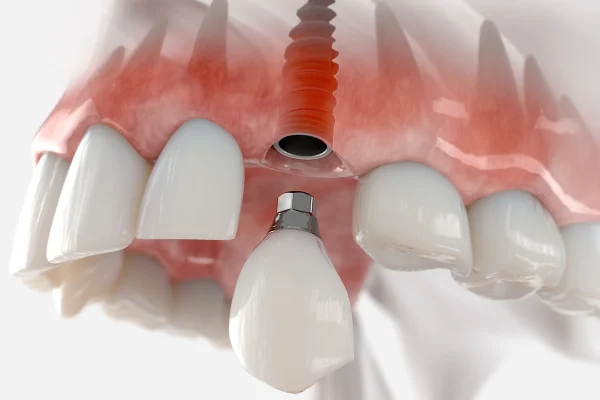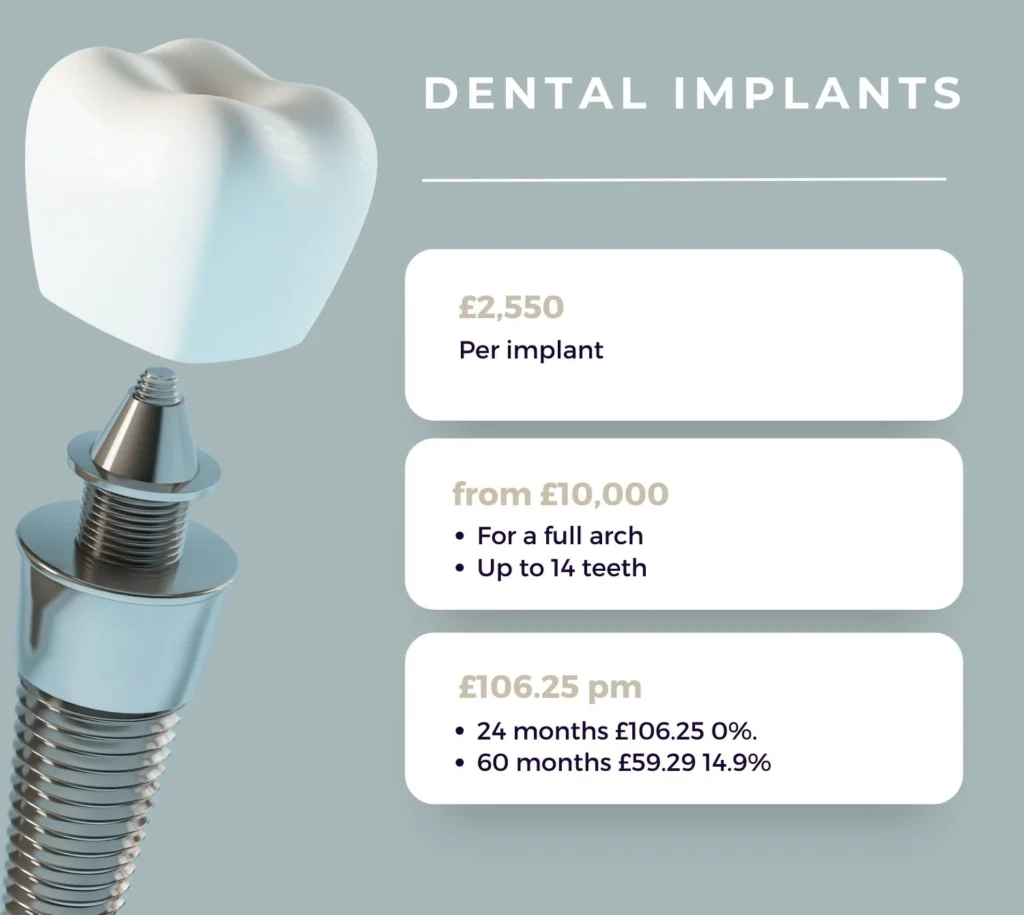
Table of Contents
ToggleKey Takeaways
- Eligibility for NHS dental implants is extremely limited and based on strict clinical need, not preference.
- Most people will not qualify for dental implants on the NHS.
- If eligible, the cost is a subsidised NHS charge (e.g., Band 3 in England), far less than private fees.
- “All-on-4” branded treatments are generally not available on the NHS; bespoke solutions are used in rare full-arch cases.
- The primary reasons for limited availability are high cost and the NHS’s need to prioritise core dental services.
- Alternatives like dentures and bridges are more common NHS offerings for tooth replacement.
Can You Get Dental Implants NHS Treatment? Exploring the Possibilities
So, let’s hit the nail on the head, or rather, the implant in the jaw: can you actually get dental implants as part of your NHS treatment? The straightforward, albeit slightly deflating, answer for the vast majority of people is: rarely. While it’s not an absolute impossibility, securing “dental implants on the nhs” is far from a routine procedure. Think of it less like getting a filling and more like winning a very specific, dentally-focused lottery. The NHS, bless its cotton socks, operates under immense financial pressure and must prioritise treatments based on stringent clinical need. This means that everyday dental care – your check-ups, fillings, extractions, and even dentures or bridges in many cases – takes precedence. Complex and costly treatments like dental implants are, understandably, subject to much stricter controls and are reserved for a very narrow band of patients whose situations are deemed exceptionally severe or unique from a medical standpoint. Funding for “nhs dental implants” is limited, and the bar for approval is set incredibly high. It’s not simply a case of wanting an implant over a denture; there usually needs to be a compelling medical reason why other, less invasive or less expensive treatments are unsuitable or have failed. This prioritisation ensures that the NHS’s finite resources are channelled towards addressing the most urgent and clinically significant dental health issues across the population, making access to “dental implant nhs” services an exception rather than the rule. We’ll delve deeper into what these exceptional circumstances might entail, but it’s crucial to manage expectations from the outset: for most, implants remain a private treatment option.
Are Implants on NHS a Generally Available Tooth Replacement Option?
When considering “tooth replacement nhs” options, it’s vital to understand where implants fit into the grand scheme of things. Are “implants on nhs” a standard, go-to solution for a missing tooth, much like a common-or-garden filling for a cavity? In a word: no. The NHS generally views dental implants as a highly specialized treatment, not a routine offering. The more conventional routes for replacing missing teeth under the NHS umbrella typically involve dentures – those removable plates holding artificial teeth – or bridges, which literally bridge the gap by anchoring an artificial tooth to the natural teeth on either side. These options are often effective, widely available, and significantly less resource-intensive for the NHS compared to the surgical complexity and material costs associated with dental implants. Therefore, if you walk into your NHS dentist with a gap and ask for an implant, the immediate suggestion, in most scenarios, will likely be to explore these more traditional avenues first. “Dental implants on the nhs” are reserved for situations where these standard treatments are demonstrably inadequate due to specific clinical factors. For instance, some individuals may be physically unable to tolerate dentures due to severe gag reflexes, specific anatomical issues in the mouth, or significant bone loss that makes denture stability impossible. It’s this level of clinical necessity, rather than patient preference for a fixed solution, that might begin to open the door to discussions about NHS-funded implants. Understanding this distinction is key to appreciating why access is so restricted. The NHS has to make tough choices about where its budget is best spent to serve the wider population’s dental health needs, and this often means prioritizing functional restoration through less costly means.
What is the Current NHS Stance on Providing Dental Implant NHS Services?
The official NHS stance on providing “dental implants nhs” services is quite clear, though often a source of confusion for patients. The National Health Service doesn’t offer dental implants as a routine treatment available to everyone who might want or even benefit from them. Instead, “nhs dental implants” are typically reserved for a small cohort of patients who meet very specific and stringent clinical criteria. These criteria usually revolve around cases where implants are deemed essential for restoring function or preventing significant long-term health issues, and where alternative treatments like dentures or bridges are medically contraindicated or have proven insufficient. For example, patients who have lost teeth and significant jawbone due to trauma (like a severe accident), extensive surgery for oral cancer, or certain congenital conditions (being born without certain teeth or with specific jaw abnormalities) might be considered. The decision-making process involves a rigorous assessment by specialist NHS consultants, often within a hospital setting. It’s not a decision your local high-street NHS dentist can typically make independently for funding purposes. They can refer you for an assessment if they believe you *might* meet the criteria, but the ultimate green light for “dental implant nhs” treatment rests with these specialized units. Furthermore, the availability of “nhs implants dental” services can sometimes vary slightly geographically, depending on the commissioning priorities of local NHS trusts and the specialist facilities available in a particular region. The overarching principle, however, remains consistent: implants are provided on the NHS only when there’s an overwhelming clinical need that cannot be addressed by other means. This ensures that this advanced and costly treatment is targeted where it can make the most profound difference to a patient’s quality of life and oral health from a medical perspective.
Is It Possible to Receive an NHS Implant Tooth or Multiple NHS Implant Teeth?
The question of whether the NHS will cover a single “nhs implant tooth” or a more extensive restoration involving multiple “nhs implant teeth” is entirely dependent on the underlying clinical justification and the specific circumstances of the approved case. There isn’t a blanket rule that dictates a maximum or minimum number of implants. If a patient meets the stringent eligibility criteria for “tooth implant nhs” treatment, the scope of that treatment – be it for one missing incisor or several strategically placed implants to support a bridge or overdenture – will be determined by what is clinically necessary to address their specific condition. For example, someone who has lost a single front tooth due to a traumatic accident and cannot wear a denture or have a conventional bridge might be considered for a single “nhs tooth implant.” Conversely, a patient who has undergone surgery for oral cancer, resulting in the loss of a segment of their jaw and multiple teeth, might be eligible for several “nhs implant teeth” to help reconstruct their dental function and facial aesthetics as part of their overall rehabilitation. The key factor is always the clinical need as assessed by NHS specialists. The decision isn’t driven by the number of gaps but by the functional impairment and the inability to resolve it through less complex NHS treatments. If a case is approved, the treatment plan will be tailored to provide the most appropriate and effective solution within the NHS framework, focusing on restoring essential function rather than purely cosmetic enhancements. It’s crucial to remember that even if multiple implants are clinically indicated and approved, the primary goal is to restore a reasonable level of dental health and function, not necessarily to provide the most comprehensive or aesthetically perfect solution that might be available privately.
Who Qualifies for NHS Dental Implants in the UK?
Navigating the labyrinth of who actually qualifies for “nhs dental implants” in the UK can feel like trying to find a specific needle in a very large, and rather bureaucratic, haystack. The overarching principle is one of strict clinical necessity. You don’t simply opt for NHS implants because you’d prefer them over dentures; eligibility is tightly controlled and reserved for individuals whose dental, and sometimes wider medical, circumstances are quite exceptional. The NHS has to ensure its resources are allocated to those with the most profound needs, where implants are not just a better option, but potentially the *only* viable option to restore essential oral function or to manage conditions stemming from severe trauma, disease, or congenital abnormalities. Think of cases like individuals who have suffered significant facial injuries leading to tooth and bone loss, patients who have undergone resective surgery for oral cancer which has dramatically altered their oral anatomy, or those born with conditions like hypodontia (missing multiple teeth) or cleft lip and palate, where conventional prosthetics might be wholly inadequate. It’s also possible that individuals who, for documented medical reasons, genuinely cannot tolerate dentures – perhaps due to an extreme gag reflex unresponsive to all attempts at desensitisation, or severe anatomical limitations in their mouth – might, just might, enter the conversation. The assessment process is rigorous, typically involving referral from a general NHS dentist to a specialist consultant in a hospital setting, who will then evaluate the case against nationally agreed guidelines. It’s a high bar to clear, and rightly so, given the cost and complexity involved.
What Are The NHS-Funded Criteria for Dental Implant Eligibility?
“The NHS-funded criteria” for “Dental Implants NHS Criteria” are quite specific and aim to identify patients for whom dental implants are a clinical necessity rather than a preference. While these can sometimes have slight nuances in interpretation or application regionally, the core principles are generally consistent across the UK. Typically, eligibility hinges on a few key categories of patients.
Firstly, individuals who have experienced significant oro-facial trauma, perhaps from an accident, that has resulted in substantial tooth loss and damage to the jawbone, where conventional dentures or bridges would be insufficient to restore function or would be unstable.
Secondly, patients who have undergone ablative surgery for head and neck cancer often qualify. The removal of cancerous tissue can lead to large defects and the loss of teeth and bone, making standard prosthetics impossible to wear or wholly ineffective; implants in such cases are part of a complex reconstructive process.
Thirdly, individuals with certain congenital and developmental disorders, such as severe hypodontia (being born missing six or more permanent teeth, excluding wisdom teeth), or conditions like cleft lip and palate, may be eligible as implants can offer a stable and long-term solution where natural tooth support is absent or compromised.
Another group sometimes considered includes patients who are completely edentulous (toothless) in one or both jaws and are demonstrably unable to tolerate well-made dentures due to severe bone resorption or an uncontrollable gag reflex, despite all other avenues being exhausted.
“Eligibility for NHS Dental Implants at Dental Scotland,” for instance, or any other specific NHS board, will adhere to these national guidelines, ensuring that resources for this advanced treatment are directed to those with the most profound and demonstrable clinical needs. It’s not about simply missing a tooth; it’s about the severe functional or medical implications of that tooth loss that cannot be addressed by simpler means.
Can You Get Free Dental Implants in the UK Through the NHS?
The question, “Who qualifies for free dental implants UK?” often arises, and it’s intertwined with the general NHS dental charging system. If you are deemed eligible for dental implants under the strict NHS clinical criteria, the treatment itself doesn’t become ‘free’ in the sense of costing absolutely nothing, unless you already qualify for full exemption from NHS dental charges. For most people, if NHS implant treatment is approved, it will fall under the highest NHS dental charge band (currently Band 3 in England, with equivalent high-level charges in Scotland, Wales, and Northern Ireland). This band covers complex procedures, including crowns, bridges, and dentures, and yes, if approved, implants. The crucial point is that this Band 3 charge is a fixed, heavily subsidised cost, far, far lower than what you would pay for private implant treatment. So, while not ‘free’ for most paying adults, it’s significantly more affordable. The concept of “How to get free dental implants in the UK: NHS-Funded Criteria” is more about meeting the stringent *clinical eligibility* criteria to have the treatment *provided* by the NHS in the first place. Once that hurdle is cleared, the standard NHS charges apply. Individuals who are exempt from NHS dental charges – such as those under 18 (though implants are rarely suitable for growing jaws), pregnant women or those who have had a baby in the last 12 months, those on certain low-income benefits (like Income Support, income-based Jobseeker’s Allowance, income-related Employment and Support Allowance, or Pension Credit guarantee credit) – would indeed receive their approved NHS implant treatment without paying the Band 3 charge. So, for these exempt groups, it would effectively be free at the point of service, provided they first meet the exceptionally high bar for clinical need.
Are There Additional Factors That Enhance Eligibility for Implants on the NHS?
Beyond the primary clinical criteria like trauma, cancer rehabilitation, or severe congenital conditions, there can indeed be “Additional factors that enhance your eligibility for dental implants on the NHS,” though these are often considered in conjunction with, rather than independently of, those core reasons. One such significant factor is the documented inability to wear or tolerate conventional dentures. This isn’t just a matter of dislike or minor discomfort. The NHS would look for evidence of a profound physiological or anatomical reason why dentures are unmanageable. This could include an extreme, persistent gag reflex that hasn’t responded to any attempts at desensitisation or modification of the denture, or severe alveolar ridge resorption (shrinkage of the jawbone) to the point where any denture, no matter how well-made, simply cannot achieve any stability or retention, leading to significant functional impairment and distress. Sometimes, “There’s one instance where you can get dental implants on the NHS” might refer to these kinds of highly specific, almost unique patient scenarios where all other avenues have been exhausted and the impact on the patient’s quality of life is substantial. For example, if a patient has a developmental anomaly of the jaw that prevents any conventional prosthesis from fitting, or if certain neurological conditions impact their ability to manage removable appliances. It’s important to stress that these additional factors are usually part of a complex clinical picture and are assessed on a case-by-case basis by specialist NHS teams. The threshold remains very high, and the decision will always be based on a comprehensive evaluation of the patient’s oral health, medical history, and the demonstrable failure or unsuitability of all other less invasive NHS treatment options.
How Much Do NHS Dental Implants Cost in the UK?
If you’re one of the very few who successfully navigate the stringent eligibility criteria and are approved for “nhs dental implants,” the next pressing question is inevitably about the cost. The good news, relatively speaking, is that if your treatment is provided through the NHS, you won’t be facing the astronomical figures often associated with private implant dentistry. Instead, the cost will be determined by the standard NHS dental charging bands. In England, for example, complex treatments like dental implants fall under Band 3. As of the current charging period, this is a set fee that covers the entirety of the course of treatment, regardless of how many appointments or specific procedures (like bone grafting, if deemed necessary and part of the NHS plan) are involved within that single course. This fixed charge is significantly – and we mean *significantly* – lower than the thousands of pounds per implant you might expect to pay in a private clinic. Similar tiered charging systems with a top band for complex treatments exist in Scotland, Wales, and Northern Ireland, although the exact amounts can differ. It’s crucial to remember that this NHS cost only applies if you’ve been officially approved through the rigorous NHS pathways, usually involving hospital-based specialists. You can’t simply request implants from your high-street NHS dentist and expect to pay the Band 3 charge; they generally don’t have the remit or funding to provide implants routinely at this cost. The subsidised “nhs implant cost” is a reflection of the NHS’s commitment to providing necessary care at an accessible price point, but only for those deemed most in need of this specific, advanced intervention.
What Are the Typical NHS Dental Implant Charges for Patients?
When it comes to “implants nhs dental charges,” patients who are approved for this treatment can expect to pay the fee corresponding to the highest band of NHS dental charges in their respective UK country. In England, this is currently Band 3, which, as of early 2024, stands at £319.10. This single payment covers the entire course of treatment related to the implants, from the initial assessments within that specific treatment plan, the surgical placement, and the fitting of the final crown or prosthesis. It’s a comprehensive charge for that episode of care. For “nhs dental implant charges” in other parts of the UK, the figures will differ. For instance, Scotland has its own scale of NHS dental fees, and while complex treatments are covered, the exact patient contribution for something as specialized as implants (if approved via hospital routes) would need to be confirmed within that system, as their statement of dental remuneration is structured differently. Similarly, Wales and Northern Ireland have their own NHS dental charging structures, typically with a top-tier charge for complex restorative work. It’s vital for patients to understand that this charge applies *per course of treatment*. If, down the line, further unrelated complex treatment is needed, a new charge may apply. However, for the implant procedure itself, once approved and commenced, it’s usually covered by that one-off Band 3 (or equivalent) payment for non-exempt patients. The key takeaway is that the cost, while not negligible, is a small fraction of private fees, reflecting the NHS’s subsidisation for clinically essential, high-level care. Always confirm the exact current charge with your NHS provider at the time of treatment planning, as these fees can be subject to annual review.
Is There a Standard NHS Dental Implant Price or Does It Vary Across the UK?
When discussing the “nhs dental implant price,” it’s important to differentiate between the concept of a ‘price’ and the NHS ‘charge’. Within England, for instance, there’s a standard Band 3 charge (£319.10 as of early 2024) that applies to all complex dental treatments falling into this category, including approved dental implants. So, in that sense, if you’re eligible for “dental implants nhs price” in England, this is the set patient contribution. However, this “dental implants cost uk nhs” isn’t uniform across the entire United Kingdom because Scotland, Wales, and Northern Ireland have devolved healthcare systems and thus their own distinct NHS dental charging structures. While they all aim to provide subsidised dental care, the specific bandings and patient charges for complex treatments can and do vary. For example, the top patient charge for a course of NHS dental treatment in Wales or Scotland will likely be a different figure to England’s Band 3. Therefore, there isn’t a single, UK-wide “standard NHS dental implant price.” Instead, there’s a standard charge within each nation’s NHS system for the highest tier of treatment, under which approved implants would fall. The critical point remains that this charge is only applicable if the patient has been formally approved for NHS-funded implant treatment through the stringent clinical eligibility pathways, typically via hospital specialist services. It’s not a ‘price list’ you can simply choose from at your local NHS practice for implants on demand. The system ensures that for approved cases, the cost to the patient is capped at a nationally agreed (within each country) subsidised rate, making it accessible, but access itself is the primary hurdle.
How Does the Cost of Dental Implants on NHS Compare to Private Treatment?
The comparison between the “cost of dental implants on nhs” and the fees for private treatment is stark, highlighting just how significant the NHS subsidy is for those few who qualify. As mentioned, an approved course of NHS implant treatment in England might fall under the Band 3 charge, currently £319.10. Now, contrast this with the private sector. A single dental implant privately can cost anywhere from £2,000 to £3,500, and often more, depending on the complexity of the case, the materials used, the reputation and location of the clinic, and whether additional procedures like bone grafting or sinus lifts are required. If multiple implants are needed, the private “dental implants nhs cost” (if it were private) would multiply accordingly, potentially running into tens of thousands of pounds for full mouth rehabilitation. Therefore, the “nhs implant cost” or “nhs costs dental implants,” when treatment is provided under the NHS, represents a massive saving, often well over 90% compared to private fees. This dramatic difference underscores why there’s so much interest in NHS availability, but also why the eligibility criteria have to be so stringent. The NHS simply could not afford to offer such a high-cost treatment routinely to all who might prefer it. The “dental implants nhs cost” to the patient is manageable precisely because the NHS absorbs the vast majority of the actual expense for these clinically essential, approved cases. It’s a system designed to provide critical care where no other options suffice, rather than a discounted route to elective procedures. Understanding this financial gulf helps to contextualise the NHS’s approach to rationing this advanced and resource-intensive treatment.
Why Aren’t Dental Implants Widely Available on the NHS?
The question “Why Aren’t Implants Widely Available on the NHS?” is one that echoes the frustrations and hopes of many seeking advanced dental solutions without the private price tag. The core reasons are multifaceted, boiling down to a complex interplay of cost, clinical priority, and the inherent nature of the NHS as a publicly funded healthcare system designed to provide comprehensive care for the entire population within a finite budget.
Firstly, dental implants are an expensive treatment. Each implant involves precision-engineered components, surgical expertise, and significant chair time, all of which carry substantial costs. If the NHS were to offer implants routinely, it would place an enormous strain on its already stretched dental budget, potentially diverting funds from more essential, widespread services like routine check-ups, fillings, emergency care, and even dentures and bridges for a larger number of patients.
Secondly, the NHS prioritises treatments based on clinical need and cost-effectiveness for the broader population. While implants are often the ‘gold standard’, other solutions like dentures or bridges can provide adequate functional restoration for many people at a much lower cost to the public purse. The NHS must make tough decisions about where its resources can achieve the greatest overall health gain.
Thirdly, implantology is a specialized field of dentistry requiring specific training and equipment, often found more concentrated in hospital settings or specialist private practices rather than every high-street NHS dental surgery. Expanding this capacity within the NHS to meet widespread demand would be a colossal undertaking.
Therefore, the limited availability is a pragmatic response to budgetary constraints and the need to ensure that core dental services remain accessible to all, reserving the most resource-intensive treatments for cases of exceptional clinical necessity.
What Are the Main Reasons You Might Be Declined for Dental Implants on the NHS?
If you’re pursuing the possibility of NHS-funded dental implants, it’s important to be prepared for the high likelihood of being declined, and to understand the “More reasons why you may be declined for dental implants on the NHS.” The primary reason, overwhelmingly, is that your clinical condition simply does not meet the very strict criteria for NHS funding. This usually means that while you may have missing teeth, your situation isn’t deemed severe enough from a medical or functional standpoint – for example, it hasn’t arisen from major trauma, oral cancer treatment, or a qualifying congenital condition. Another significant reason for refusal is the availability of less complex, less costly, yet still clinically acceptable alternative treatments through the NHS, such as well-made dentures or conventional bridges. If these options are considered viable for restoring adequate function, even if they are not your preferred choice, the NHS is unlikely to fund implants. Lifestyle factors can also play a crucial role. For instance, active smokers or individuals with poorly controlled diabetes or a history of untreated periodontal (gum) disease may be declined because these conditions significantly increase the risk of implant failure. The NHS needs to ensure that such an investment has the highest possible chance of long-term success. Furthermore, if your oral hygiene is consistently poor, this would be a major contraindication, as meticulous cleaning is essential for implant longevity. Sometimes, anatomical factors, such as insufficient bone volume in the jaw to support implants without extensive (and costly) grafting procedures that fall outside typical NHS provision for non-priority cases, might also lead to a declination. Ultimately, the decision rests on a careful balance of demonstrable clinical need, the absence of viable alternatives, and factors promoting a good prognosis for the treatment within the resource constraints of the NHS.
How Can You Get Dental Implants Through The NHS? A Step-by-Step Guide
Embarking on the journey to potentially secure dental implants through the NHS is less a straightforward path and more an obstacle course with a very specific finish line. It’s a process that requires patience, clear understanding, and a degree of luck in meeting the stringent criteria. The first crucial step, almost invariably, begins with your general NHS dentist. You’ll need to have a consultation where you discuss your missing teeth and your desire for implants. Your dentist will assess your oral health, the reasons for your tooth loss, and whether there are any immediate indicators that you *might* fall into one of the exceptional categories for NHS funding. If your dentist believes there’s a potential, however slim, that you could meet the criteria – perhaps due to the nature of your tooth loss (e.g., significant trauma) or a documented inability to tolerate conventional dentures – they may then initiate a referral. This referral isn’t to a secret implant club; it’s typically to a consultant in restorative dentistry or oral and maxillofacial surgery at an NHS hospital or a specialist dental hospital. This is where the real scrutiny begins. You’ll undergo a thorough assessment by specialists who are versed in the national and local guidelines for NHS-funded implant treatment. They will evaluate your clinical records, conduct their own examinations, and perhaps take further radiographs or scans. It’s vital to manage expectations regarding waiting times; referrals to hospital specialists can take many months, and even then, the assessment process itself can be lengthy. If, after this exhaustive evaluation, you are deemed eligible, a treatment plan will be formulated. But if not, you’ll be advised on alternative NHS options or private routes.
What is the Process for Seeking NHS Dental Implants in Specific Areas like Glasgow or Fulham?
While the overarching principles of NHS dental implant eligibility are nationally defined, the precise administrative process for seeking assessment can have local variations. For instance, if you’re looking into “How to Get dental implants on NHS in Glasgow at Dental Scotland,” your journey would likely start with your registered NHS general dental practitioner in the NHS Greater Glasgow and Clyde health board area. If they identify a potential clinical need that aligns with the strict criteria (such as those outlined in “Get Best Dental Implants on NHS in Glasgow – Eligibility”), they would typically make a formal referral to a specialist restorative or maxillofacial department, perhaps at the Glasgow Dental Hospital or another relevant NHS hospital within the board. The referral would need to meticulously detail the clinical reasons why implants are being considered over other prosthetic options. Similarly, for patients in London, perhaps seeking “Dental Implants Fulham | NHS Dentist” or guidance as per “How to Get Dental Implants Through The NHS | Maida Smiles (W. London)” (though noting Maida Smiles is a private practice, they might offer guidance on NHS routes if applicable), the initial point of contact is still your local NHS dentist. They would assess your situation and, if appropriate, refer you to a relevant NHS hospital trust in London that provides specialist implant services, such as Guy’s and St Thomas’ NHS Foundation Trust or King’s College Hospital Dental Institute. Each NHS Health Board in Scotland, or NHS Trust in England, will have its own specific referral pathways and designated specialist centres. A “Your Complete Guide to Getting Dental Implants on the NHS in Glasgow” would essentially map out these local referral routes and patient journeys within that specific health board’s framework, always underscoring the high threshold for eligibility. The key is that your general dentist acts as the gatekeeper for initiating this specialist referral process, regardless of your specific geographic location within the UK.
Can You Get All-on-4 Dental Implants on the NHS?
The “All-on-4” dental implant technique has gained considerable popularity as a full-arch tooth replacement solution, often lauded in the private sector for its ability to restore an entire set of teeth on just four strategically placed implants per jaw. This naturally leads to the question: can you get this specific, often heavily marketed, procedure on the NHS? The answer, to be blunt, is almost certainly no, at least not under the “All-on-4” branded name or as a routinely offered procedure. While the NHS *does* provide implant-supported full arch restorations in exceptionally rare and complex cases (for instance, after major facial trauma or cancer surgery), these are tailored to the individual’s specific clinical needs and anatomy, and are not necessarily following a prescriptive commercial technique like All-on-4. The “All-on-4” concept is primarily a private dentistry offering, often involving specific implant angulation and immediate loading protocols that are part of a proprietary system. The NHS focuses on providing clinically necessary and evidence-based solutions using established implant protocols that fit within its funding and service delivery models. If a patient qualifies for full-arch rehabilitation with implants on the NHS due to severe clinical need, the consultant team will design a bespoke treatment plan, which might involve a varying number of implants (potentially more or fewer than four) placed in optimal positions according to the patient’s bone quality and quantity. The priority is functional restoration and long-term stability, not adherence to a particular commercial brand or technique. Therefore, if you specifically search for “Can I get All-on-4 dental implants from NHS – Coppertop” (Coppertop being a private provider discussing this), the information will invariably point towards this being a private treatment, with NHS provision for full arch cases being highly restricted and based on different criteria and approaches.
What Is the Availability of All-on-4 Implants Specifically Through NHS Channels?
When considering the “Availability of All-on-4 Implants on NHS,” it’s crucial to understand that the NHS doesn’t typically provide treatments based on specific commercial brand names or proprietary techniques like “All-on-4.” If a patient is eligible for full-arch implant rehabilitation under the extremely stringent NHS criteria (e.g., following extensive oral cancer surgery or severe trauma leading to complete tooth loss and inability to wear dentures), the treatment provided will be a custom solution designed by NHS hospital specialists. This solution will be based on established implantology principles and tailored to the patient’s unique anatomical and clinical needs. It might involve placing multiple implants to support a full-arch bridge or an implant-retained denture, but it wouldn’t be marketed or delivered as “All-on-4.” The decision on the number of implants, their placement, and the type of prosthesis would be purely clinical. The question, “Can I get All-on-4 dental implants on the NHS?” is therefore generally met with a negative response if you’re thinking of the specific branded procedure. The NHS focuses on functional restoration using proven, cost-effective (within the context of advanced treatments) methods. While the outcome – a fixed full set of teeth – might seem similar, the pathway, the specific techniques used, and the underlying philosophy are different. NHS full-arch implant cases are exceptionally rare, reserved for the most complex situations where no other form of prosthetic rehabilitation is viable. So, while the *concept* of a full-arch implant-supported restoration exists within the NHS for these select few, it is not synonymous with the commercial “All-on-4” protocol. Access is through specialist hospital referral for profound clinical need, not as an elective choice.
Is There a Government Grant for Dental Implants in the UK?
A common query from those daunted by the private cost of dental implants is whether there’s a “government grant for implants” available in the UK. It’s a hopeful question, picturing a dedicated fund to help individuals access this transformative treatment. However, the reality is that there isn’t a specific, standalone “government grant for dental implants” that you can apply for in the same way you might apply for grants for home adaptations or educational courses. The UK’s system for state-supported dental care operates primarily through the National Health Service. Therefore, any “government” assistance for dental implants is channelled through the NHS’s own funding mechanisms and eligibility criteria. If you meet the exceptionally strict clinical criteria for NHS-funded implants, the treatment is then provided at the standard NHS subsidised charge (or free if you’re exempt from charges), which is, in effect, the government’s contribution or ‘grant’ towards the cost. There isn’t an alternative pot of money administered by a government department that patients can tap into for dental implants if they don’t qualify through the NHS route. Occasionally, people might explore charitable grants or assistance through specific benevolent funds related to certain professions or medical conditions, but these are not “government grants” and are usually very specific and limited in scope and availability. The primary avenue for state support remains meeting the high bar for NHS provision, which, as we’ve discussed, is reserved for cases of significant clinical necessity. So, while the desire for such a grant is understandable, the current system doesn’t operate in that way for dental implants.
How Can You Find Out if You’re Eligible for a UK Government Grant for Implants?
When patients ask, “Can I get a government grant for dental implants in the UK?”, the answer, in terms of a dedicated, separate grant fund, is generally no. The UK government’s financial support for dental implant treatment is almost exclusively delivered through the National Health Service. Therefore, finding out if you’re “eligible” effectively means finding out if you meet the stringent clinical criteria for receiving dental implants on the NHS. As detailed earlier, this involves conditions such as severe facial trauma, consequences of oral cancer treatment, or specific congenital abnormalities where implants are deemed the only clinically viable solution. To explore this, your first port of call is your NHS general dental practitioner. They can assess your situation and, if they believe you *might* meet the very high threshold, they can refer you to specialist NHS services (usually in a hospital) for a full evaluation. If these specialists confirm your eligibility, the “grant” is essentially the NHS covering the vast majority of the treatment cost, leaving you to pay the standard NHS patient charge for complex treatment (e.g., Band 3 in England), unless you qualify for full exemption from NHS dental charges (due to low income, certain benefits, age, or maternity). Outside of this NHS pathway, there are no widespread “government grants” specifically for dental implants that individuals can apply for. While some very specific disability or hardship funds (not directly dental-focused government grants) might theoretically be approached in exceptionally rare circumstances, these are not common routes for funding dental implants and would depend heavily on individual, complex circumstances unrelated to routine dental needs. The most direct and established route for potential state-funded assistance is via the NHS eligibility criteria.
What Are the Alternatives if NHS Implants Aren’t an Option?
For the vast majority who find that NHS-funded dental implants are not an option, it’s essential to explore the “Alternatives to NHS Implants” to address missing teeth. Fortunately, modern dentistry offers several viable solutions, though they come with their own sets of pros, cons, and costs. The most common alternatives typically discussed within both NHS and private contexts are dentures and bridges. Dentures, which can be partial (replacing a few teeth) or full (replacing all teeth in an arch), are removable appliances that have been a mainstay of tooth replacement for decades. Modern dentures can be very well-made, offering good aesthetics and function, and are often the most cost-effective solution, readily available on the NHS. Conventional fixed bridges are another option, where an artificial tooth (a pontic) is supported by crowns placed on the natural teeth adjacent to the gap. Bridges are a fixed solution, which many prefer to removable dentures, and can also be available on the NHS under certain clinical circumstances, though the criteria for NHS bridges can also be specific. Beyond these, if you’re looking for a fixed solution and don’t qualify for NHS implants, private dental implants remain the gold-standard alternative. While more expensive, going private offers greater choice in terms of timing, materials, and potentially the scope of treatment available. Some patients also explore resin-bonded bridges (Maryland bridges), which are less invasive than conventional bridges as they have ‘wings’ that bond to the back of adjacent teeth, though these are often best for front teeth and may not be as durable long-term. Exploring these alternatives with your dentist, discussing your specific needs, budget, and lifestyle, is crucial to finding the most suitable path forward for your dental health and smile.
Which NHS Trusts or Hospitals Offer Dental Implant Services?
If you are one of the very few individuals deemed eligible for NHS-funded dental implants, the treatment is typically carried out not in a high-street general dental practice, but within a hospital setting by specialist teams. Many larger NHS Trusts across the UK that have dedicated restorative dentistry, oral surgery, or maxillofacial surgery departments may offer dental implant services, strictly for patients who meet the national and local eligibility criteria. These are often teaching hospitals or major regional centres with the necessary expertise, equipment, and multidisciplinary support for complex cases. For example, “Dental implants service – Overview | Guy’s and St Thomas’ NHS Foundation Trust” in London is a well-known provider, catering to complex cases referred from a wide area. Similarly, “Dental Implants – Leeds Teaching Hospitals NHS Trust” and the “Implant – University Dental Hospital of Manchester” (which offers “Dental Implant Treatment – University Dental Hospital of Manchester”) are key centres in their respective regions. Cambridge University Hospitals (“Dental implants in restorative dentistry | CUH”) and “NHS funded implants – Newcastle Hospitals NHS Foundation Trust” also provide these specialised services. It’s important to understand that you generally cannot self-refer to these hospital departments for NHS implants. Access is almost always via a formal referral from your general NHS dentist or another medical specialist, and only after a thorough assessment confirms that you meet the stringent clinical criteria for NHS funding. These hospital departments are geared towards managing complex dental reconstructions, often related to trauma, cancer, or congenital conditions, rather than routine tooth replacement. The list isn’t exhaustive, and local health boards or trusts will have designated centres for such specialised care.
Where Can You Find Information on NHS Funded Implants from Specific Trusts like Guy’s and St Thomas’, Leeds, Manchester, or Newcastle?
To find specific information on “NHS funded implants” from particular hospital trusts such as “Dental implants service – Overview | Guy’s and St Thomas’ NHS Foundation Trust,” the “Dental Implants – Leeds Teaching Hospitals NHS Trust,” the “Implant – University Dental Hospital of Manchester” (also detailed under “Dental Implant Treatment – University Dental Hospital of Manchester”), “Dental implants in restorative dentistry | CUH” (Cambridge University Hospitals), or “NHS funded implants – Newcastle Hospitals NHS Foundation Trust,” your best starting point is usually the official website of that NHS Trust or dental hospital. Most trusts provide online information about the services their departments offer, including restorative dentistry or oral and maxillofacial surgery, which are the specialties typically handling complex implant cases. These web pages might outline the types of conditions they treat and, crucially, their referral criteria and pathways for NHS treatment. They will almost certainly reiterate that NHS implant treatment is reserved for patients with specific, severe clinical needs. You’ll typically find that they emphasize that referrals must come from a general dental practitioner or another relevant healthcare professional. Direct self-referral for NHS-funded implants is generally not an option. Contacting the Patient Advice and Liaison Service (PALS) of a specific hospital trust might also provide some general guidance on services, though they wouldn’t be able to assess your eligibility. For detailed information pertinent to your own situation, the discussion must start with your own GDP, who can then make an appropriate referral if they believe you meet the high threshold for consideration by these specialist hospital departments. These departments are primarily focused on managing complex oral rehabilitations often necessitated by trauma, oncological surgery, or significant congenital anomalies, ensuring that NHS resources for implants are directed where the clinical need is greatest.
What Do General NHS Dental Treatments Typically Cover?
To truly understand where dental implants sit within the National Health Service, it’s helpful to have a clearer picture of what “Dental treatments – NHS” generally encompass for the majority of the population. The NHS is designed to provide clinically necessary dental care to maintain oral health, prevent dental disease, and restore function when teeth are lost or damaged. This includes a fairly broad spectrum of treatments, though not everything that might be available privately. Routine check-ups are a cornerstone, allowing dentists to monitor your oral health, provide advice on prevention, and identify any issues early. If problems are found, the NHS covers treatments like fillings (amalgam or, where clinically appropriate, tooth-coloured), root canal treatments to save infected teeth, and extractions if a tooth is beyond saving. For tooth replacement, the NHS routinely provides dentures (full or partial) and, in many cases, conventional bridges, assuming the clinical conditions are suitable and it’s a cost-effective solution. Crowns are also available on the NHS if there’s a clinical need to protect or restore a heavily broken-down tooth. Emergency dental care, to address issues like severe pain, swelling, or trauma, is another vital component of NHS dental provision. The system operates on different charge bands in England (with equivalent systems in Scotland, Wales, and Northern Ireland), where patients pay a set fee for a course of treatment, depending on its complexity. Dental implants, as we’ve extensively discussed, fall outside this routine provision due to their cost and specialized nature, being reserved for exceptional clinical circumstances, usually managed in a hospital setting. Thus, while the NHS offers comprehensive care for most common dental needs, advanced or primarily cosmetic procedures often fall outside its standard remit.
Frequently Asked Questions About Dental Implants NHS
The world of “dental implants NHS” is filled with questions, and rightly so – it’s a complex topic with significant implications for your health and finances. We’ve covered a lot of ground, but some queries pop up more frequently than others. Patients are understandably keen to know the bottom line: can they get them, who actually qualifies, what’s the damage to the wallet if they do, why are they so elusive, and what about specific types like All-on-4? This section aims to provide concise, clear answers to these burning questions, drawing on the detailed information already discussed. Think of this as your quick-reference guide to the core issues surrounding NHS dental implants. While the detailed explanations in the preceding sections offer depth, sometimes a direct recap of the key takeaways is what’s needed to solidify your understanding. We’ll revisit the essential points, ensuring you have a robust grasp of the realities. Remember, knowledge is power, especially when navigating healthcare options. The more you understand about how the NHS approaches dental implants, the better equipped you’ll be to discuss your needs with your dentist and make informed decisions about your treatment path, whether that ultimately lies within the NHS framework for a select few, or through alternative avenues for the majority. Let’s tackle these common concerns head-on, aiming for clarity and practicality.
Can You Get Dental Implants NHS Treatment? Exploring the Possibilities
This is, without doubt, the most frequently asked question. The short answer is: yes, it is *possible*, but it is exceptionally rare for most people. “Dental implants NHS” treatment is not a routine offering. The NHS prioritises its limited resources towards providing essential dental care for the entire population, and complex, costly procedures like dental implants are reserved for a very small number of patients with specific, severe clinical needs. These needs typically arise from situations like major facial trauma (e.g., from an accident), the aftermath of oral cancer surgery where significant tissue and teeth have been lost, or certain congenital conditions (like being born missing multiple teeth or having a cleft palate) where conventional dentures or bridges are demonstrably inadequate or impossible to use. It’s not a case of patient preference for implants over other solutions; there must be a compelling medical or functional justification assessed by NHS specialists, usually in a hospital setting. Your general NHS dentist cannot typically provide implants under NHS terms themselves but can refer you for assessment if they believe your case might meet the stringent criteria. For the average person missing a tooth or two due to common reasons like decay or gum disease, NHS-funded implants are, unfortunately, highly unlikely. The system is designed to address the most profound needs first, making this advanced treatment an exception rather than the rule within NHS dental care. Understanding this from the outset helps manage expectations and allows for a more realistic exploration of all available tooth replacement options.
Who Qualifies for NHS Dental Implants in the UK?
Qualification for “NHS dental implants” in the UK hinges on meeting very strict and specific clinical criteria, as this treatment is reserved for those with exceptional needs. It’s not simply about having missing teeth; it’s about the severe circumstances leading to that tooth loss or the profound inability to use conventional prosthetic solutions. Key groups who *might* qualify include:
• Patients who have suffered significant oro-facial trauma (e.g., severe accidents) resulting in substantial tooth and bone loss.
• Individuals who have undergone surgery for head and neck cancer, leading to defects that make standard dentures unwearable or ineffective.
• Patients with certain congenital or developmental conditions, such as severe hypodontia (being born with six or more missing permanent teeth, excluding wisdom teeth) or conditions like cleft lip and palate.
Additionally, in some rare cases, individuals who are completely edentulous (toothless) and can demonstrate a profound, medically documented intolerance or inability to wear well-made conventional dentures, perhaps due to extreme anatomical limitations or an uncontrollable gag reflex that hasn’t responded to any interventions, might be considered. The assessment is rigorous and usually conducted by specialist NHS consultants in a hospital environment following a referral from a general dentist or another medical professional. Lifestyle factors, such as smoking or poor oral hygiene, can also negatively impact eligibility, as the NHS needs to ensure the best possible chance of long-term success for such a significant investment of resources. Essentially, you must have a compelling clinical reason why implants are the *only* viable solution for restoring essential function.
How Much Do NHS Dental Implants Cost in the UK?
If you are among the very few who qualify for “NHS dental implants,” the cost to you as a patient is significantly lower than private fees. Instead of paying thousands of pounds per implant, the treatment, if approved, falls under the standard NHS dental charging system. In England, for example, dental implants are covered by the Band 3 charge. As of early 2024, this charge is £319.10. This single payment covers the entire course of complex treatment related to the approved implants within that episode of care. Scotland, Wales, and Northern Ireland have their own devolved NHS dental services with different charging structures, but they operate on a similar principle: a top-tier charge for the most complex treatments, which would include approved implants. This NHS charge is heavily subsidised, meaning the NHS covers the vast majority of the actual cost of the procedure. It’s important to note that this patient charge applies unless you are eligible for full exemption from NHS dental charges (e.g., due to being on certain low-income benefits, under 18, or pregnant/new mother). If you are exempt, and you meet the clinical criteria for NHS implants, the treatment would be free at the point of service. The key takeaway is that the “cost of dental implants on NHS” is not reflective of their true market price but is a capped, accessible fee for those who meet the strict clinical eligibility, making it financially manageable for essential, approved cases.
Why Aren’t Dental Implants Widely Available on the NHS?
The limited availability of “dental implants on the NHS” stems from a combination of crucial factors, primarily revolving around cost, resource allocation, and clinical prioritisation within a publicly funded healthcare system.
• Firstly, dental implants are an inherently expensive treatment. They involve costly materials (like titanium), specialist surgical skills, significant clinical time, and often complex laboratory work. If the NHS were to offer implants routinely to everyone who might benefit from or prefer them, the financial burden on the dental budget would be immense, potentially jeopardising funding for more basic, essential dental care for the wider population – services like check-ups, fillings, emergency treatments, and dentures.
• Secondly, the NHS operates on the principle of providing treatments that are clinically necessary and cost-effective. While implants are often considered the ‘gold standard’, other more traditional tooth replacement options like dentures and bridges can provide adequate function for many patients at a substantially lower cost. The NHS must prioritise interventions that deliver the greatest health gain for the most people within its finite budget.
• Thirdly, implantology is a specialised field of dentistry. Expanding the infrastructure and trained personnel within the NHS to offer implants on a widespread basis would require a massive investment.
Therefore, the current approach is to reserve this advanced and resource-intensive treatment for a small number of patients with the most severe and complex clinical needs, where implants are deemed essential and other options are unviable. This ensures that the NHS can continue to provide comprehensive core dental services to all, while targeting high-cost treatments judiciously.
Can You Get All-on-4 Dental Implants on the NHS?
When patients ask about “All-on-4 dental implants on the NHS,” they’re usually referring to a specific, often commercially branded, technique for full-arch tooth replacement using four strategically placed implants. The direct answer is that it’s highly unlikely you would receive an “All-on-4” procedure by that name or as a standard offering through the NHS. The NHS does, in exceptionally rare and clinically justified cases (such as after major oral cancer surgery or severe trauma resulting in complete toothlessness and inability to wear dentures), provide full-arch implant-supported restorations. However, these are bespoke treatments designed by NHS hospital specialists based on the individual patient’s anatomy and clinical requirements, not according to a proprietary commercial protocol. The number of implants used, their placement, and the type of prosthesis would be determined by clinical best practice and evidence, not by adherence to a specific branded technique. The “All-on-4” concept is predominantly a private sector offering, often involving particular implant angulations and immediate loading protocols. The NHS’s priority for complex full-arch cases is to provide a robust, functional, and long-lasting solution tailored to the patient, using established implantology principles that fit within its service and funding models. So, while the outcome of a full set of fixed teeth on implants might be achieved in these very rare NHS cases, it wouldn’t be delivered as an “All-on-4” package. Eligibility for any full-arch implant solution on the NHS is exceptionally stringent, far beyond simply needing all teeth replaced.






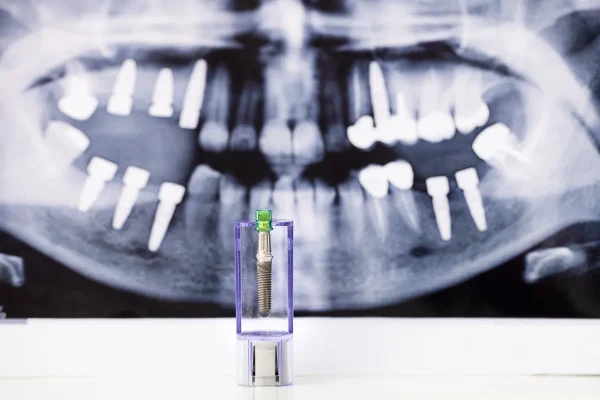
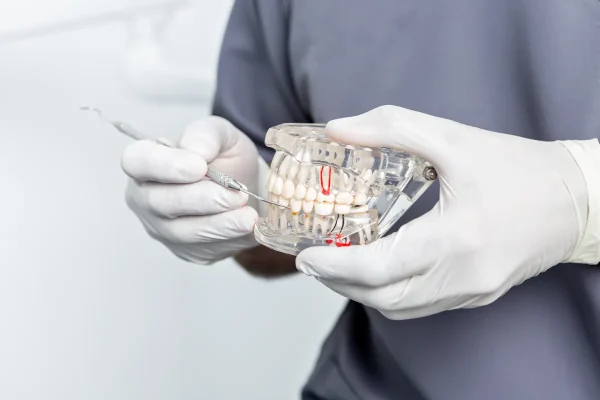

![Dental-Implants-NHS-e1747325783549-1024×915[1] Dental-Implants-NHS-e1747325783549-1024x915[1]](https://dentale-albania.com/wp-content/uploads/elementor/thumbs/Dental-Implants-NHS-e1747325783549-1024x9151-1-r5xyg5ea74oh73k9z5uv5amgw2c45uxhewp2r8hqqo.webp)






